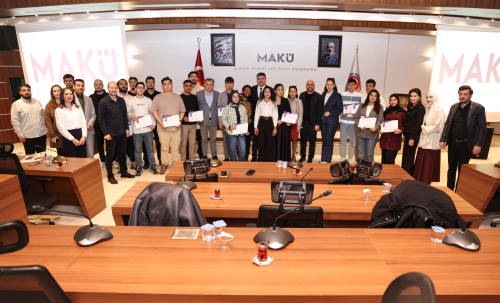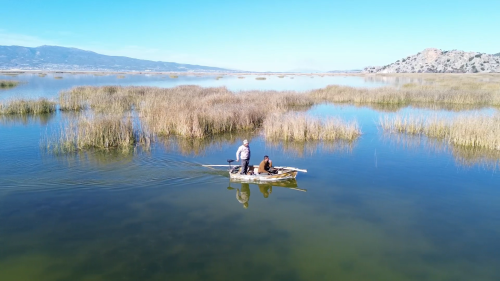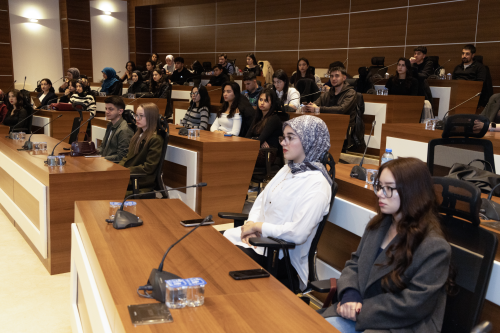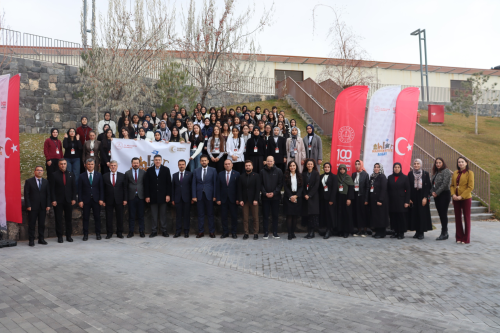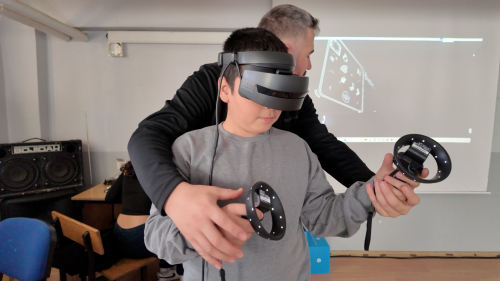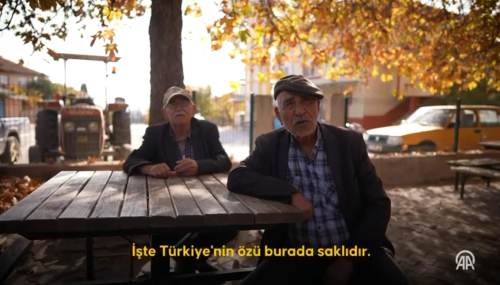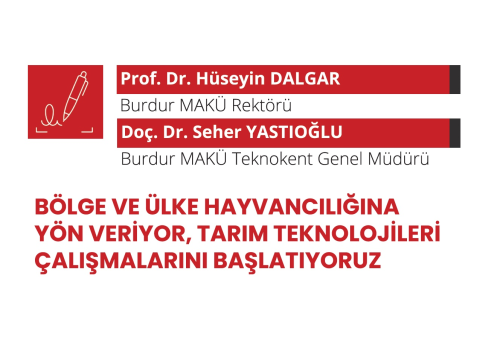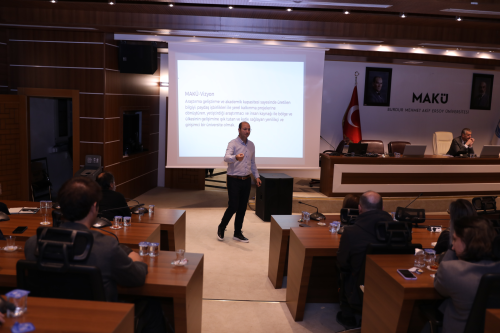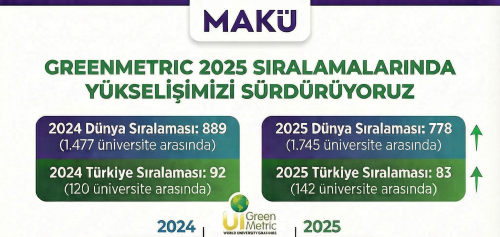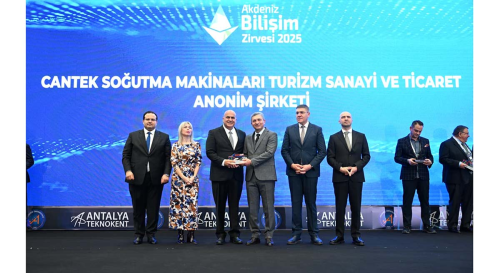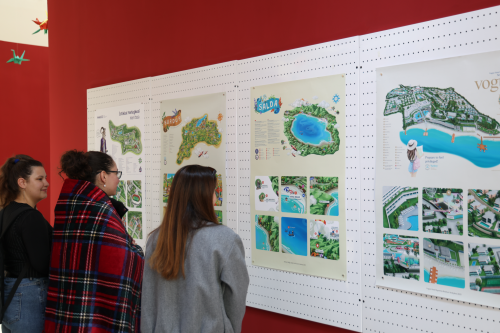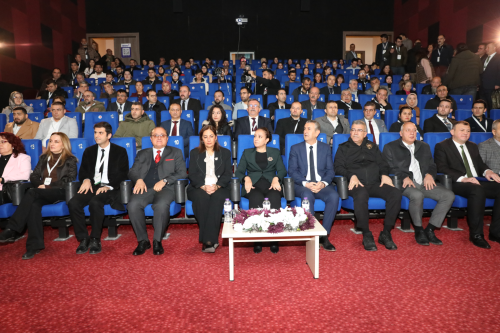A photobioreactor named "aLgaç", which can hold the carbon dioxide held by 5-6 trees in a day and operates with solar energy, was developed by scientists at MAKU in Burdur. The algae in aLgaç, which first captures carbon dioxide and converts it into biomass, can then be used as a feed additive.
aLgaç was developed within the scope of the Regional Development Oriented Mission Differentiation and Specialization Program Innovative Food and Feed Additive as a Green Source: Microalgae (YeYeM) project, together with undergraduate students by Assoc. Prof. Dr. Füsun Akgül, a faculty member of the Department of Molecular Biology Genetics at Burdur Mehmet Akif Ersoy University (MAKÜ).
Holds the Carbon Monoxide Held by 5-6 Trees in a Day
aLgaç is an ecological application aimed at reducing the carbon dioxide ratio in the atmosphere and increasing the oxygen ratio by using carbon dioxide, the most important of greenhouse gases, whose emissions increase every day. The panel type microalgae photobioreactor, named aLgaç, derived from the words algae and tree, has the capacity to hold and convert into biomass the carbon dioxide held by 5-6 25-year-old trees in 1 day. aLgaç, which meets its electricity needs with a solar energy system, is a self-sufficient closed system that will make minimum consumption.
A First in Turkey
aLgaç is designed to be used in situations where air pollution is intense and there is no time and space for afforestation. It can be used as an alternative carbon holding source in big cities where vehicle and population density, and therefore carbon dioxide emissions, are high. Although there are a few examples of aLgaç in the world, aLgaç is the first and only in our country. Its small volume designs can be popularized and used to increase oxygen concentration in crowded indoor spaces such as hospitals and schools.
Project manager Assoc. Prof. Dr. Füsun Akgül said the following in her speech about her project:
"We know that three quarters of the world is water and photosynthetic organisms responsible for primary production, which we call microalgae and macroalgae, live in these wetlands. Algae are the organisms with the highest biomass in nature and studies show that 70% of the oxygen in the atmosphere is produced by algae.
On the other hand, the rate of carbon dioxide, the most important of greenhouse gases in the atmosphere, is increasing every day, causing global warming. This situation leads to climate disasters and changing weather events. Research and estimates predict that our country's total CO2 emissions will increase by 66% to approximately 700 million tons by 2050 compared to the 2018 level. The European Union, which Turkey also signed in 2019, aims to zero carbon emissions and be climate-neutral by 2050 under the Green Deal agreement. We believe that our country should not stay away from these concepts of green economy and green transformation and should work in this field.
With this thought in mind, we made our aLgaç design derived from the words algae and tree. We designed a panel type photobioreactor with a microalgae species with a high carbon dioxide holding rate and high biomass productivity. We thought of it as an innovative solution that can be used in metropolises where carbon dioxide emissions are high, and in areas where there is not enough time and space to plant trees.
According to our biomass productivity calculations, it has the potential to hold the carbon dioxide held by 5-6 25-year-old trees in one day. It is an ecological and economical design without any energy consumption. In addition, the microalgae biomass we obtain as a result of the culture is a high value-added product with the potential to be used as a feed additive or biofertilizer.
In addition, our project serves the Sustainable Development Goals, which the United Nations, of which our country is also a founding member, aims to achieve by 2030; 3. Health and Quality Life, 7. Accessible and Clean Energy, 11. Sustainable Cities and Communities, 13. Climate Action, 15. Terrestrial Life.
In this respect, we aimed to create awareness for our students, our people and our managers by doing a new study in the field of "microalgae biotechnology", whose importance is gradually increasing in the world, and including our students in the process."
Aleyna Gülşen, Ayşe Nur Uğur, Batuhan Gürakan and Özge Korkmaz, 4th year students of the Department of Molecular Biology and Genetics who took part in the project, stated that they were very happy to take part in such an important project and wanted to work at a more advanced level in this field.
Diğer Haberler
